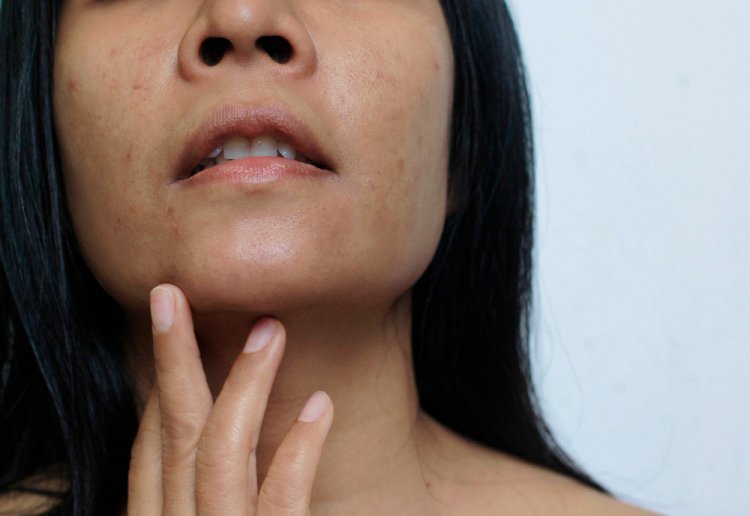Effects of Contraceptives on the Skin
Contraceptives, both hormonal and non-hormonal, wield a significant influence on reproductive health. However, their impact often extends beyond contraception to affect various aspects of skin health. Understanding these effects is paramount for individuals contemplating contraceptive choices and healthcare professionals offering guidance. In this comprehensive exploration, we delve into the multifaceted effects of contraceptives on the skin.

Hormonal Contraceptives and Skin Health
1. Acne Management
Hormonal contraceptives, particularly combination birth control pills containing estrogen and progestin, are frequently prescribed to manage acne. By regulating hormone levels, these pills effectively reduce sebum production, a primary factor in acne development. Consequently, many users experience a notable improvement in skin clarity and reduction in acne severity upon initiating hormonal contraceptives.
2. Melasma
Melasma, characterized by hyperpigmented patches on the skin, is intricately linked to hormonal fluctuations. Certain hormonal contraceptives, particularly those containing estrogen, can exacerbate melasma in predisposed individuals. Therefore, it is crucial for healthcare providers to discuss the risk of melasma exacerbation when prescribing hormonal contraceptives, especially to those with a history of the condition.
3. Hyperpigmentation
While some contraceptives may worsen melasma, others have been associated with generalized hyperpigmentation. Progestin-only contraceptives, including certain birth control pills, implants, and injections, have been implicated in causing skin hyperpigmentation in some users. This highlights the importance of considering individual susceptibility to hyperpigmentation when selecting contraceptive methods.
4. Skin Hydration
Estrogen, a key component of many hormonal contraceptives, plays a crucial role in maintaining skin hydration. Consequently, individuals using estrogen-containing contraceptives often experience improved skin moisture levels, leading to a healthier and more radiant complexion. However, it is essential to monitor hydration levels and adjust skincare routines as needed to prevent dryness or irritation.
Non-Hormonal Contraceptives and Skin Health
1. Barrier Methods
Non-hormonal contraceptives, such as condoms and diaphragms, exert no direct influence on hormone levels and typically have minimal impact on skin health. However, allergic reactions to latex condoms can cause skin irritation in susceptible individuals, necessitating the exploration of alternative materials for those affected.
2. Copper Intrauterine Devices (IUDs)
Copper IUDs, a non-hormonal contraceptive option, can induce changes in menstrual bleeding patterns. While they do not directly affect skin health, some users may experience increased menstrual bleeding, which can indirectly impact skin condition due to hormonal fluctuations during the menstrual cycle.
Tips for Maintaining Skin Health While Using Contraceptives
Hydration: Regardless of contraceptive choice, maintaining adequate skin hydration through regular moisturization is essential to prevent dryness and irritation.
Sun Protection: Certain contraceptives can render the skin more photosensitive. Therefore, using sunscreen with a high SPF and adopting sun-protective measures such as wearing hats and protective clothing are crucial to prevent sun-induced skin damage.
Consultation: Before initiating or switching contraceptives, consulting with a healthcare provider is imperative. They can offer personalized advice based on individual health history and skin concerns, facilitating informed decision-making.
Skincare Routine: Establishing a consistent skincare routine tailored to one's skin type can complement the effects of contraceptives and promote overall skin health. This may include gentle cleansing, exfoliation, and the use of moisturizers and targeted treatments as needed.
In conclusion, Contraceptives are indispensable tools in family planning and reproductive health, yet their effects on skin health should not be overlooked. By understanding how different contraceptives influence the skin and implementing appropriate skincare practices, individuals can effectively manage any associated skin-related effects while reaping the benefits of contraception. Collaboration between individuals and healthcare providers is key to ensuring informed decision-making and optimizing skin health in contraceptive users.
#ContraceptivesAndSkin #HormonalContraceptives #NonHormonalContraceptives #SkinEffectsOfContraceptives #ContraceptivesAndAcne #HormonalBirthControlAndSkin #SkinHealthAndContraceptives #ContraceptiveSideEffectsOnSkin #SkinCareTips #HealthySkin #SkincareRoutine #SunProtection #FamilyPlanning #ReproductiveHealth #SkinHydration #MelasmaManagement #AcneTreatment #Hyperpigmentation #PersonalizedSkincare #HealthcareAdvice
Disclaimer:
The information provided in this article is for educational purposes only and should not be considered medical advice. If you have any health concerns or are experiencing symptoms, it is important to consult with a healthcare professional, such as a doctor or clinic, for proper diagnosis and treatment. Always seek the advice of your doctor or other qualified health provider with any questions you may have regarding a medical condition. Do not disregard professional medical advice or delay in seeking it because of something you have read in this article.
What's Your Reaction?





















